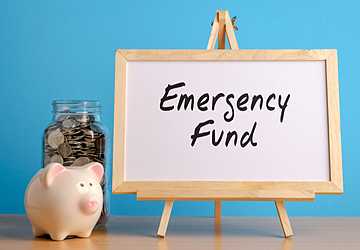How to Navigate Insurance Terminology: A Comprehensive Glossary
Author: Jimmy Page
Insurance is a great thing to have in your life. The whole process can be simple, but the terminology and words can be complicated for a layperson to understand. Like any other industry, this industry has its terms and expressions. Before you can buy insurance for yourself or someone else, you need to understand these words to get you through the process quickly.
This article is a comprehensive guide to understanding the various terms commonly used by insurance companies. This will help you get to know and communicate with your employees more efficiently, and you can also fill out forms. So let's look at this guide and the different words you'll find when applying for insurance.

Standard terms used by insurance companies:
The insurance industry glossary is extensive; we have listed some common words people need help understanding.
Current currency value:
Actual cash value is the value of an item or property if lost or damaged. The real cash value is not equal; it is smaller than the replacement cost.
· Summary:
The total is the military rate your insurer will charge you after calculating all losses during your policy term.
· Malicious:
Typically, this term is used by customers or policyholders to claim that an insurance company or company is deliberately delaying or denying the application process.
· Bank Error:
An error or problem in a company's production setup that ultimately leads to loss is known as a factory defect.
· Beneficiaries:
A beneficiary is someone who does not receive money or receive insurance benefits after the policyholder dies.
· Attacks:
Bodily injury is not just physical injury. This insurance covers sickness, pain, and psychological and even emotional stress.
· Proof of Insurance:
This certificate ensures that a person is insured. This certificate contains all the information about the insurance policy and indicates the person's coverage.
· Coverage:
Coverage is the amount of damage you receive. Coverage may vary depending on the circumstances and the type of insurance you choose.
· Comprehensive Insurance:
This is insurance for the landlord. Here, the contract is transferred from the rental car driver to the company providing the rental car.
· Deductible:
This is the amount that the customer must pay the insurance company upfront. If the loss of or damage to property or material does not exceed the excess you paid, you may be entitled to a refund of the remaining balance.
· Explanation page:
You will find all the basic information about your insurance coverage on this page. Information about you and your property is also listed here. This is usually the first page of the entire contract.
· Recognition of:
This is a statement that can be added to a policy. Any changes you make to your policy, adding more coverage, or removing something will be mentioned here.
· Garage location:
If you're looking for car insurance, you've probably come across this term. This is where your vehicle would usually be parked. Depending on where you live, it may be different for everyone.
· Hurricane/Named Storm Surplus:
If insurance is provided for property damage due to wind or hail, the customer will pay this additional cost separately. Special conditions apply here, where you must state the different deductibles.

· Prevent identity theft:
This type of insurance is needed if a customer is subject to identity theft or fraud. Then you can claim your insurance.
· Insurance companies:
An insurance company is an intermediary for buying insurance or a company that helps you and provides you with all services.
· Liens:
Creditors can use insurance to ensure their payments when someone is in debt. This is called a lien.
· Malicious pranks:
In the case of willful property damage, it can be said to be malicious damage. From an insurance standpoint, this also counts as vandalism.
· Market value:
This is what the property will sell for on the open market.
· Damage Control:
Reduction refers to the measures taken to reduce the insured amount of the customer's loss.
· Named Insured:
This is the name of the person who bought the insurance. The insured name is the name that appears on all documents. They are also called policyholders.
· Naming hazards:
The hazards and natural events listed in the insurance documents are collectively called hazards.
· Personal protection:
Personal injury coverage is insurance for medical expenses caused by accidents. This form of payment can also be used for funerals upon the policyholder's death. You can also use it for the cost of home-related services. Coverage must be specified and may vary by location.
· Replacement cost:
This is the actual cost of the damaged material or property. This fee is much cheaper compared to the real cash value.
Diploma:
There are many complex terms and words used in the insurance industry. This confuses someone if they have never been to an insurance company. Hence, the above terms are most commonly used when buying insurance.







